WHO WE ARE
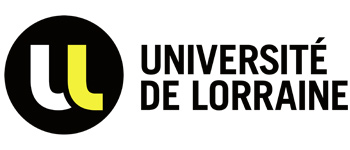
University of Lorraine
The University of Lorraine (UL) is a dynamic educational and research institution in the heart of Europe. With a vibrant community of over 60,000 students, including nearly 8,000 from abroad, and 3700 teaching and research faculty, UL stands as a beacon of knowledge, innovation, and international collaboration.
At the forefront of UL’s scientific excellence are Mines Nancy and the Institute Jean Lamour (IJL), both renowned for their leadership in materials science and engineering. Mines Nancy, a graduate engineering school with a rich history, embraces a forward-looking approach to technology and multidisciplinary education. Its commitment to project-based learning showcases its dedication to solving real-world challenges.
The Institute Jean Lamour (IJL) further elevates UL’s stature in the field of materials science. As one of Europe’s leading research centers, IJL brings together around 500 experts across disciplines to advance the study and application of materials and processes. Equipped with world-class facilities, including the unique TUBE platform, IJL is at the cutting edge of research from the atomic to the macroscopic scale, closely aligned with industry needs and sustainable development goals.
Together, researchers from Mines Nancy and IJL form an integral part of the HERawS team, their expertise and innovative approaches underscore UL’s commitment to excellence and its pivotal role in shaping the future of technology and industry.

Alexandre Nomine
Associate Professor
More info
The Project’s Principal Investigator and Head of the International Office at Mines Nancy (University of Lorraine) where he teaches Material Science (Sustainable Materials by Design).
He conducts research on the synthesis of Nanoparticles at the Institute Jean Lamour. His initial field of expertise concerns plasma processes for materials processing such as Plasma Electrolytic Oxidation, Magnetron Sputtering and Electric discharges in Liquids.
He’s the leader of several projects integrating the Green Transition dimension in the engineering field of study such as GREENANO Erasmus Mundus Joint Master which aims to foster the development of Nanomaterials for Green and Digital Transitions and the international conference “Academia Stands for Green Deal” annually hosted at Mines Nancy, the University of Lorraine.

Michel Cathelineau
Professor
More info
Director of Research at CNRS since 1987, at GeoRessources (UMR UL-CNRS). His expertise covers geology, geochemistry of ore deposits and ore mineralogy to ore processing.
He has strong experience in the management of European projects including NewOres (leader of the project devoted to a world-class Sn-W-Cu deposit- 2015-2018 ), and in charge of the UL part in the projects: Deasphor (alternatives for Phosphorus resources, 2018-2022), Mostmeg (Li-Nb-Ta-Sn deposits related to granite intrusions, 2020-2023)

Tatiana Banderova
Project Coordinator
More info
European Projects Coordinator and International Promotion Manager at Mines Nancy.
With 10 years of experience in international education management, global communication and partnership development, she is responsible for the international communication and coordination of EU-funded projects including GREENANO Erasmus Mundus Joint Master, Future Networks Academy and Academia Stands for Green Deal international conference.

Loick Briot
AI and Software Engineer
More info
Key competencies: Artificial Intelligence, Web Development, Web Scraping, Robotics

Alexandre Chagnes
Professor
More info
After working on the electrochemistry of lithium-ion batteries in France and the electrocatalytic hydrogenation of organic compounds in Canada, Prof. Alexandre Chagnes started a research activity in the field of hydrometallurgy between 2005 and 2016 at Chimie ParisTech (Paris) as Associate Professor. Since 2016, he has been a Full Professor at Université de Lorraine.
He was the former director of the national network on extractive metallurgy (Promethee) in 2014-2020, Director of the Industrial Partnerships between 2018-2022 at the Engineering School of Geology (Nancy, France), and he is currently the Scientific Director of the LabEx RESSOURCES21, which gathers nine laboratories involved in the value chain of metals for the energy transition.
Prof. Chagnes aims to develop fundamental research on the comprehension of the physicochemistry involved in processes for the recovery of metals from primary and secondary resources in order to develop new processes or improve existing processes. Presently, most of its research activities are focused on recycling of lithium-ion batteries and e-waste, and the production of metals for the energy transition.
He has published 154 papers, 7 books, 15 book chapters and 3 patents in solution chemistry, thermodynamic, electrochemistry or separation science and he has been given 168 talks in national and international meetings.

Olga Chernoburova
Project Manager at LabEx RESSOURCES21
More info
Key competencies: Mineral Processing and Metallurgy

Sevra Cicekli
PhD Student
More info
Key competencies: Multi-Criteria Decision Making

Chahrazed Labba
Postdoctoral Researcher
More info
Key competencies: Artificial Intelligence, Edge Computing, Distributed System

Outhmane Ouahri
Research Intern
More info
Key competencies: Mineral Resources for Energy Transition
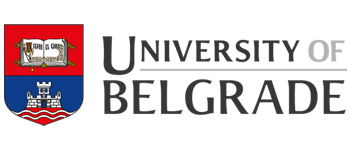
University of Belgrade
The University of Belgrade stands as a beacon of higher education and scientific research in Serbia. With a history spanning two centuries, the University has made significant contributions to the cultural, scientific, educational, political, and economic fabric of the country, earning its reputation as a national treasure.
With 31 faculties across diverse fields from Social Sciences and Humanities, to Medical Sciences and Technology and Engineering Sciences, along with 11 Institutes, the University of Belgrade educates over 100,000 students.
The HERawS team is proud to incorporate the expertise in environmental science and engineering provided by researchers from the University of Belgrade’s Faculty of Forestry, particularly from the Department of Ecological Engineering in Soil and Water Resources Protection. This collaboration emphasizes the University’s focused commitment to tackling global environmental challenges and promoting sustainable solutions.
Through its comprehensive educational offerings and commitment to excellence, the University of Belgrade continues to foster progress and prosperity, standing as a pillar of higher education and research in the region.

Tijana Vulevic
Associate Professor
More info
Assistant Professor at the University of Belgrade Faculty of Forestry.
Her research is mostly related to the application of multi-criteria decision-making (MCDM) methods (AHP, ELECTRE, SAW, TOPSIS, PROMETHEE) on soil and water resource management and spatial modelling of land degradation in a GIS environment.
She has obtained a PhD thesis in the field of decision-making for natural resource (soil and water) management. She has been involved in a training course on soil-water conservation and ecosystem restoration in Jangling, China and NASA’s Applied Remote Sensing Training program for Land Monitoring Application. She has participated in the organization of numerous conferences, and on five projects related to natural resource conservation.
She is a member of the Serbia Chamber of Engineers, World Association of Soil and Water Conservation (WASWAC), a member of the Association of European Operational Research Societies (EURO).

Nada Dragovic
Professor
More info
A full professor at the Department of Ecological Engineering in Soil and Water Resources Protection and was head of this Department from 2012 until 2021. She was educated at the Faculty of Forestry in the field of soil erosion and torrent control.
Prof. Dragović has published more than 130 scientific papers so far, alone or in cooperation with other authors, in the following research fields: soil erosion and torrent control, the application of modern planning methods, project management in the field of torrent control, watershed management, research in erosion processes and sediment transport.
Also, she participated in 11 national and 6 international projects, of which she is the coordinator of two international projects: “Natural Resource Management in the SEE countries: Assessment and Recommendations” and the Erasmus + K2 project “Soil Erosion and Torrential Flood Prevention: Curriculum Development at the Universities in Western Balkan Countries (SETOF).
She is a member of WASWAC (World Organization for Soil and Water Conservation) and the national coordinator for Serbia.

Vesna Nikolic
Professor
More info
Key competencies: Environmental studies, relation between soil, plants, and pollution


Ratko Ristic
Professor
More info
Dr. Ratko Ristić completed his habilitation at Belgrade University in 2000 on the Hydrology of Torrential Flows. He is a full Professor at the Faculty of Forestry and a correspondence member of the Academy of Engineering Sciences of Serbia (AINS). He was a vice-dean for research and development (2009-2015) and dean (2015-2021) at the Faculty of Forestry, University of Belgrade.
He has been an invited lecturer at universities in Russia, Macedonia, Canada, Morocco and Bosnia and Herzegovina.
He has published 143 scientific papers dealing with soil erosion control, torrential flood prevention,
hydrology, sustainable watershed management and natural disaster prevention. Prof. Ristić was a designer for more than 140 projects related to erosion and torrent control in Serbia, Bosnia and Herzegovina and Montenegro.
In 2017, he was appointed the representative of Serbia in the Committee on Science and Technology, at UNCCD (United Nations Convention Combat Desertification). In 2020, he was elected as a Vice President of the UNCCD Bureau of Science and Technology

Mirjana Todosijevic
Associate Professor
More info
Associate Professor and Head of the Department of Ecological Engineering in Soil and Water Resources Protection at the Faculty of Forestry.
Her research interests include erosion and torrent control research, sustainable land management, socio-demographic aspects of land degradation, social, economic and ecological effects of erosion and torrent control, soil conservation, ecosystem services.
Dr. Todosijević has published more than 70 bibliographic units so far, alone or in cooperation with other authors. Also, she participated in 8 national, 9 projects in the economy and 5 international projects. She is a member of WASWAC (World Organization for Soil and Water Conservation).

Aleksandar Baumgertel
Teaching Assistant
More info
Key competencies: Protective forest belts (PFBs), agroforestry, wind erosion, land degradation, ecosystem services
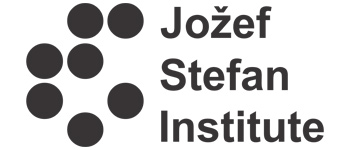
Jozef Stefan Institute
The Jožef Stefan Institute (JSI) is Slovenia’s premier research institution, excelling in a wide array of basic and applied research within the natural sciences, life sciences, and engineering. Established in 1949, JSI has evolved to become a symbol of scientific achievement and innovation in Slovenia, reflecting the country’s commitment to advancing knowledge across various fields.
With a dedicated team of around 1,100 professionals, JSI spearheads research in physics, chemistry, biochemistry, electronics, information science, nuclear technology, energy utilization, and environmental science. This multidisciplinary approach has positioned JSI as a leader in both Slovenian and international scientific communities.
JSI’s mission encompasses providing top-tier scientific and applied outputs, nurturing skilled young scientists, and maintaining excellence through global scientific standards. This is achieved through robust collaborations with universities, other research institutions, and the industry, ensuring a dynamic and impactful research environment.
Significantly, JSI contributes to the HERawS team with its expertise in environmental sciences, especially through its Department of Environmental Sciences. This department focuses on the intersection of physical, chemical, and biological processes affecting the environment, highlighting JSI’s role in advancing sustainable solutions and environmental protection. Research areas include plasma nanoscience, chemistry, electrochemistry, plasma biotechnology, biomedicine, and advanced sensors, showcasing JSI’s commitment to cutting-edge research and technological innovation.
JSI not only champions scientific research but also plays a pivotal role in education and knowledge transfer. This comprehensive approach underscores JSI’s dedication to addressing global challenges, making it a key player in the HERawS team and beyond.

Uros Cvelbar
Professor
More info
Full Professor of Nanosciences, and specialist in plasma physics, material research, composites and gas sensors. He is also Head of the IPS Commission for Quality, a member of the ECS (Electrochemical Society) executive board, Division for Dielectric Science and Technology and the chair of the executive committee of Plasma Nanoscience. He is an ERUDITE professor in India and a visiting professor at Shanghai Jiao Tong University.
Dr Cvelbar’s bibliography contains more than 150 international scientific papers, 78 invited talks, and 16 patents. He works as a guest editor of the Journal of Physics D: Appl. Phys., ECS Transactions, Plasma Sources Science and Technology, and is associated editor of journals Nature Scientific Data, Frontiers in Materials and Frontiers in Energy Research for Nanoenergy technology and materials section. He has a significant international impact reflected in over 7000 citations and H-index 53.

Janez Zavasnik
Associate Professor
More info
Assistant Professor at the International Postgraduate School Jožef Stefan (since 2020) and Senior Researcher at the Jožef Stefan Institute, leader of the joint laboratory “Extreme Energy Materials” between Max–Planck Institute for Sustainable Materials (Germany) and Jožef Stefan Institute (Slovenia).
He finished his PhD in 2013 in “Investigations of twinning and phase transformation in iron sulphides”, and completed his postdoctoral research at Max–Planck–Institute für Eisenforschung (MPIE) in Düsseldorf.
He is an instrumentalist, with expertise in nanomaterials, applied crystallography and analytical transmission and scanning electron microscopy, with a special focus on analytics and in–situ methods. He authored > 60 SCI papers and was involved in several students’ training and education processes, research and industrial projects.
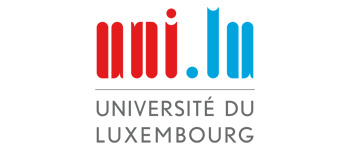
University of Luxembourg
The University of Luxembourg, established in 2003, is renowned for its multilingual, international, and research-oriented approach. With approximately 53% of its 6,200 students coming from 107 different countries, University of Luxembourg fosters a truly global learning environment. The university is structured into three Faculties and three Interdisciplinary Centres, employing about 1,400 individuals, including 400 PhD candidates and 225 professors, assistant professors, and senior lecturers. The University provides a wide range of academic programs, all dedicated to producing top-tier scientific and applied outputs and well-trained young scientists.
One of University of Luxembourg’s flagship research entities, the Interdisciplinary Center for Security, Reliability and Trust (SnT), launched in 2009, specializes in cutting-edge information and communication technology research. SnT collaborates closely with industry and public sector partners through its Partnership Programme, focusing on strategic ICT areas like Autonomous Vehicles, Cybersecurity, FinTech, the Internet of Things, Secure and Compliant Data Management, and Space Systems. The center’s rapid growth is marked by the recruitment of top scientists, the creation of spin-offs, and a dynamic interdisciplinary research environment.
The University of Luxembourg’s commitment to advancing knowledge is reflected in its participation in over 1,000 research projects, with a significant footprint in European research initiatives under programs like H2020 and FP7. This commitment extends to the HERAwS team, where University demonstrates its dedication to leveraging its research capabilities to tackle global challenges, underscoring the university’s role as a leader in fostering innovative solutions for a sustainable future.
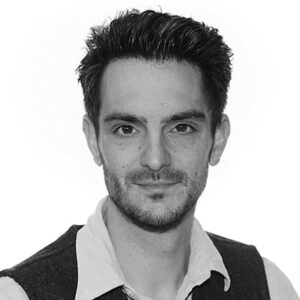
Sylvain Kubler
Research Scientist

